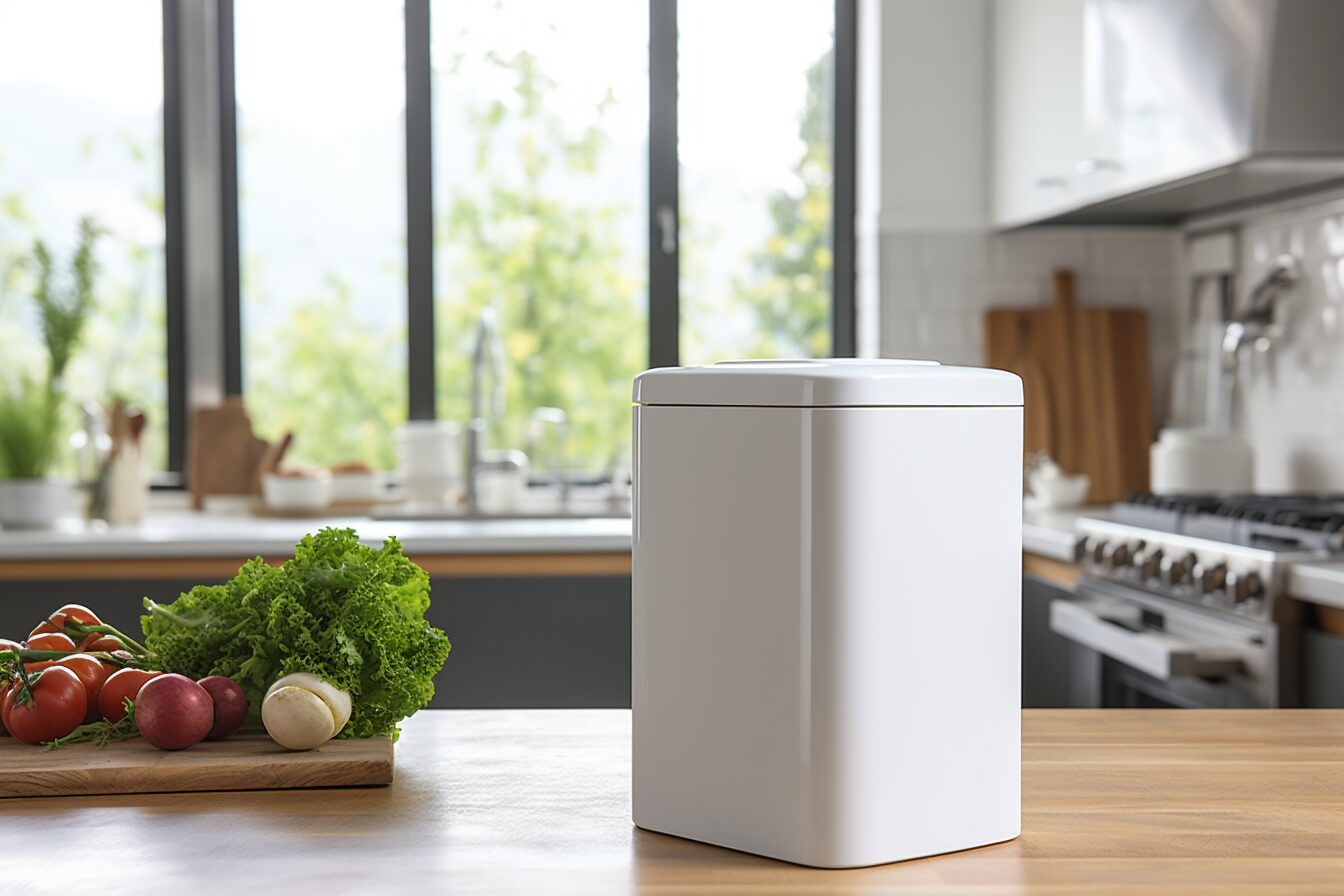
How to Compost in an Apartment Without Worms
We are reader-supported. When you buy through links on our site, we may earn affiliate commission.
Composting is an excellent way to prevent food waste from going to landfills and releasing harmful methane into the atmosphere. You may think you can’t compost if you live in an apartment because you have no outdoor space, and you’re repulsed by the thought of having a traditional bin with worms inside your home. Thankfully, there are options. Here’s how to compost in an apartment without worms so you can do your part for the planet without compromising on your quality of life.
Why Compost?
It’s estimated that about 106 million tons of food goes to waste annually in the U.S. Of that number, 24% comes from the residential sector. That’s why people must do their part to reduce the amount of garbage they produce in their homes.
Composting is the solution. It cuts down on food waste, including the costs associated with transporting it to landfills. The resulting product can be used to enrich soil, leading to healthier plant growth and preventing erosion. Apartment dwellers can use it in their patio gardens or windowsill flower beds or donate it to community garden programs.
Apartment Composting Methods
Although traditional composting includes using worms to help break down materials, you don’t need to use them in your apartment if the thought gives you the creepy-crawlies. Worms help aerate the soil and maintain nitrogen levels, but you can do that on your own with a little elbow grease. Learn how to compost in an apartment without worms and still reap the benefits.
1. Electric Composters
Electric composters are the way to go if you want a simple, efficient plug-and-play setup. You fill them with food waste, including dairy, meat, and eggs, press the button and end up with compost in a matter of hours. These machines are easy to use, produce no odor and are ideal for small spaces. The composted material can be used immediately after the cycle is completed.
However, electric composters can be expensive. You’ll have to shell out bucks for the initial purchase and pay for the electricity they use, which may defeat the purpose of aiming for eco-friendliness.
Buy here: https://amzn.to/3JpOBFW
2. Bokashi Bucket
Bokashi buckets are an ideal way to compost in an apartment without worms, as they rely on microbes to anaerobically ferment food waste. You coat it with Bokashi bran, which is a mixture of bacteria and yeast that digests and ferments the ingredients, press everything down, and seal it tight. You will need to drain the resulting liquid through a spigot every few days, which makes for an ideal compost tea for indoor plants.
Startup costs are low, although you must constantly buy the required bran. The resulting fermented waste will be highly acidic and must be buried outdoors to decompose and become nutrient-rich soil.
Buy here: https://amzn.to/3JpOBFW
3. Compost Tumbler
Consider a compost tumbler if you’re looking for a more traditional composting method. It’s best to use on a balcony or other outdoor space and has a capacity of 50 gallons or less.
Their ease of use is the biggest selling point. You simply fill the chamber and turn it every three days or so until done, which can take several weeks. Depending on the size you choose, you can create large batches of compost at one time. However, they do need to be kept outdoors, which may be challenging for apartment residents who do not have access to balconies or patios.
Buy here: https://amzn.to/3JpOBFW
4. DIY Plastic Bin
You may decide that creating your own compost bin is the best option. You will need a plastic bucket or container with a lid, a drill, and a mesh screen. Here are the steps to follow to create a DIY composter:
- Drill holes in the lid to provide ventilation.
- Hot glue the mesh screen to the bottom of the lid to keep pests out.
- Add dirt and shredded newspaper to the bottom for a base.
- Add kitchen scraps to be composted, avoiding meats and dairy products, which will smell.
- Stir once weekly to aerate the mixture, covering it with more soil and newspaper to control odor.
- Your compost will be ready in about four weeks.
This is an inexpensive method, but it can produce strong odors and attract pests. The decomposition process will also be slower than an outdoor bin, as heat speeds up the process. However, it’s a good option for small spaces.
What You Can and Can’t Compost in Your Apartment
Now that you know how to compost in an apartment without worms, you must ensure you put the right materials in your bins. Some items cannot be composted indoors.
These scraps are ideal for your indoor bin:
- Tea and tea bags
- Coffee grounds and filters
- Crushed eggshells
- Fruits and vegetables
- Grass and leaves
- Sawdust and wood ashes
- Hair and pet fur
- Shredded newspaper
Avoid using these items in your compost bin, which will cause odors, attract pests and parasites, and make the products too acidic to use:
- Whole eggs
- Meat
- Grease and fats
- Onion and citrus peels
- Bread
- Pet waste
What to Do With Your Compost
You may find that you create more compost than you can use in your apartment. Thankfully, you have options to make the most of your hard work.
Search for a community garden near you. People involved in projects like this will likely welcome compost to use on their plants, and you’ll know it’s going to good use. You will probably have to be a member and may even be able to benefit from a food-sharing program for your efforts.
See if your landlord would like to use the compost to help outdoor or lobby plants grow. This will help beautify the complex and you may even be able to negotiate a lower rent.
How to Compost in an Apartment Without Worms
Learning how to compost in an apartment without worms has many benefits. You can create your own nutrient-rich soil to help your plants thrive, prevent food waste and do your part for the environment. There’s no need to use worms in your compost bin — you can still get optimal results without them. Choose a method that appeals to you and reap the many rewards of composting.
Share on
Like what you read? Join other Environment.co readers!
Get the latest updates on our planet by subscribing to the Environment.co newsletter!
About the author

Steve Russell
Steve is the Managing Editor of Environment.co and regularly contributes articles related to wildlife, biodiversity, and recycling. His passions include wildlife photography and bird watching.





